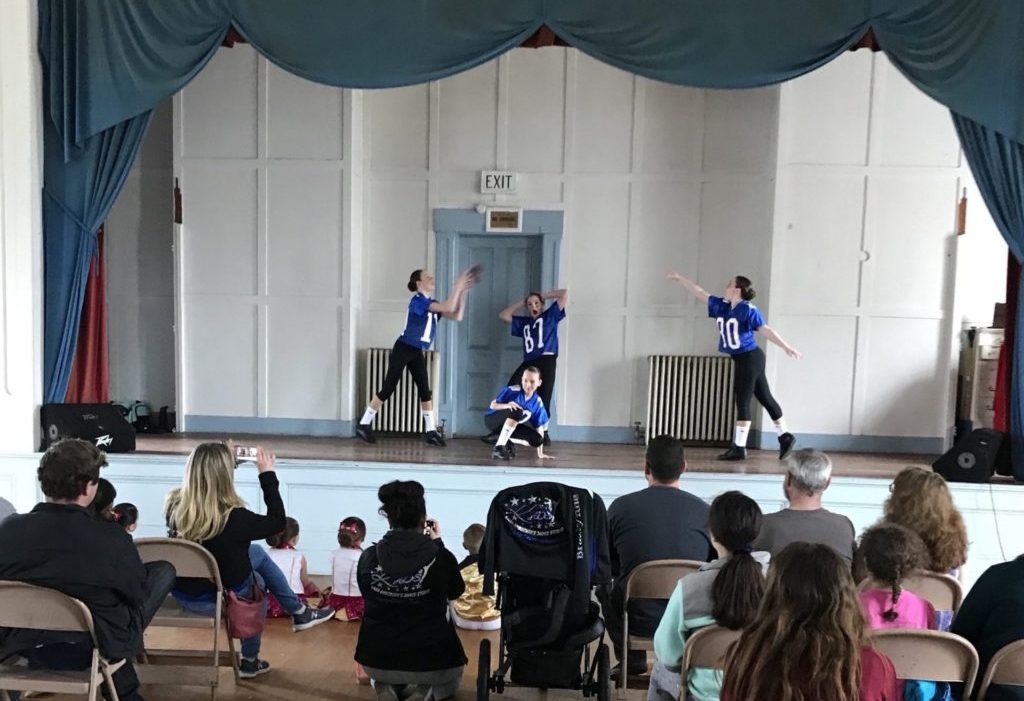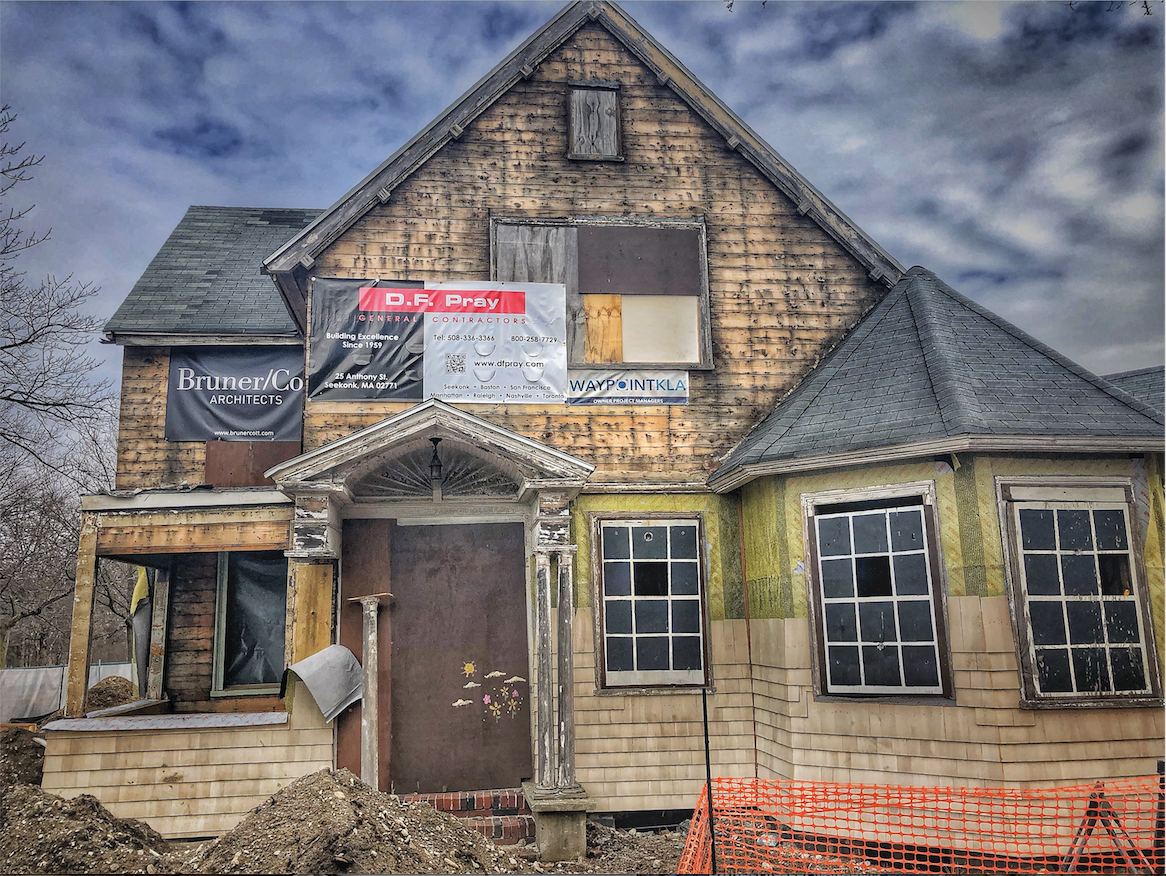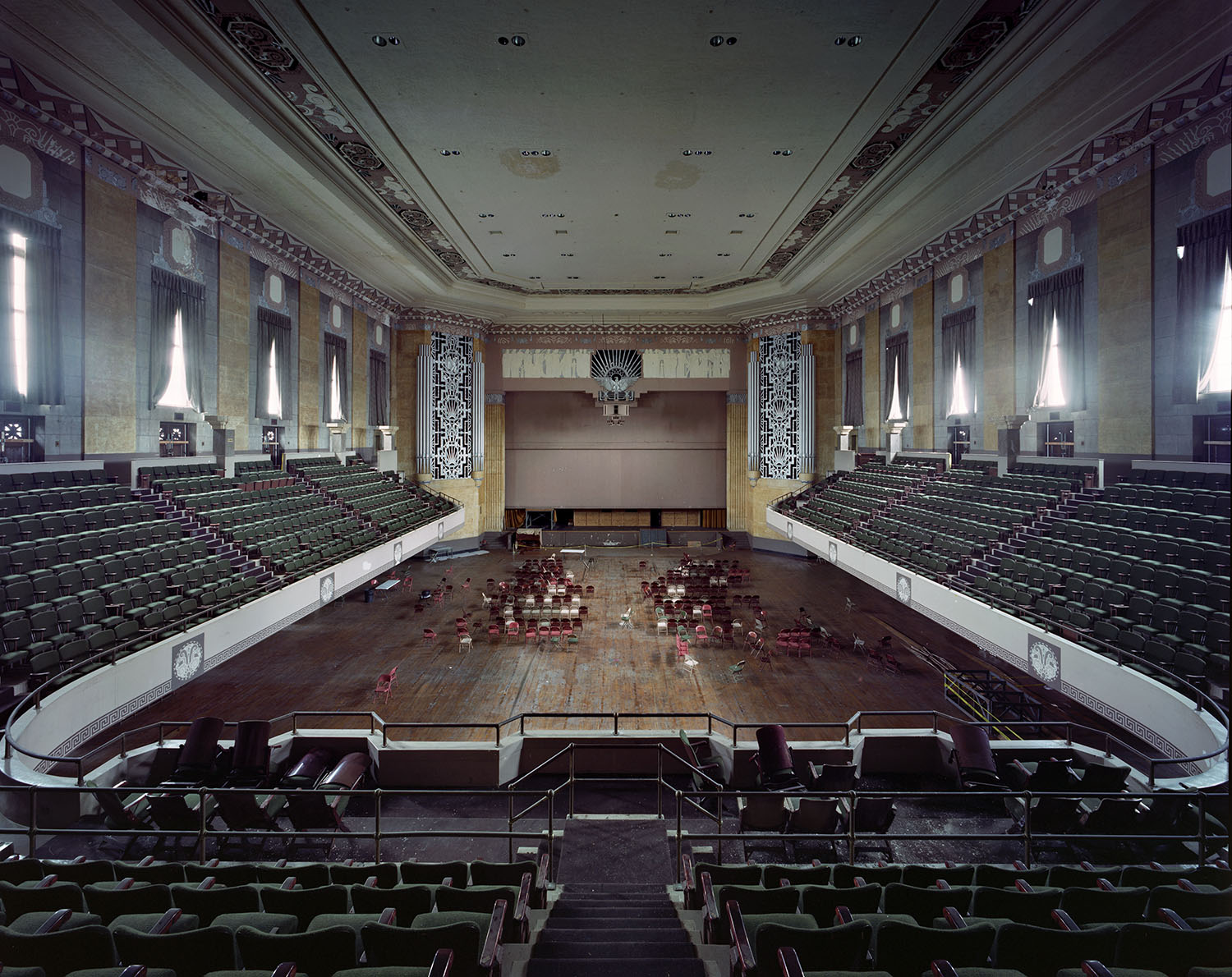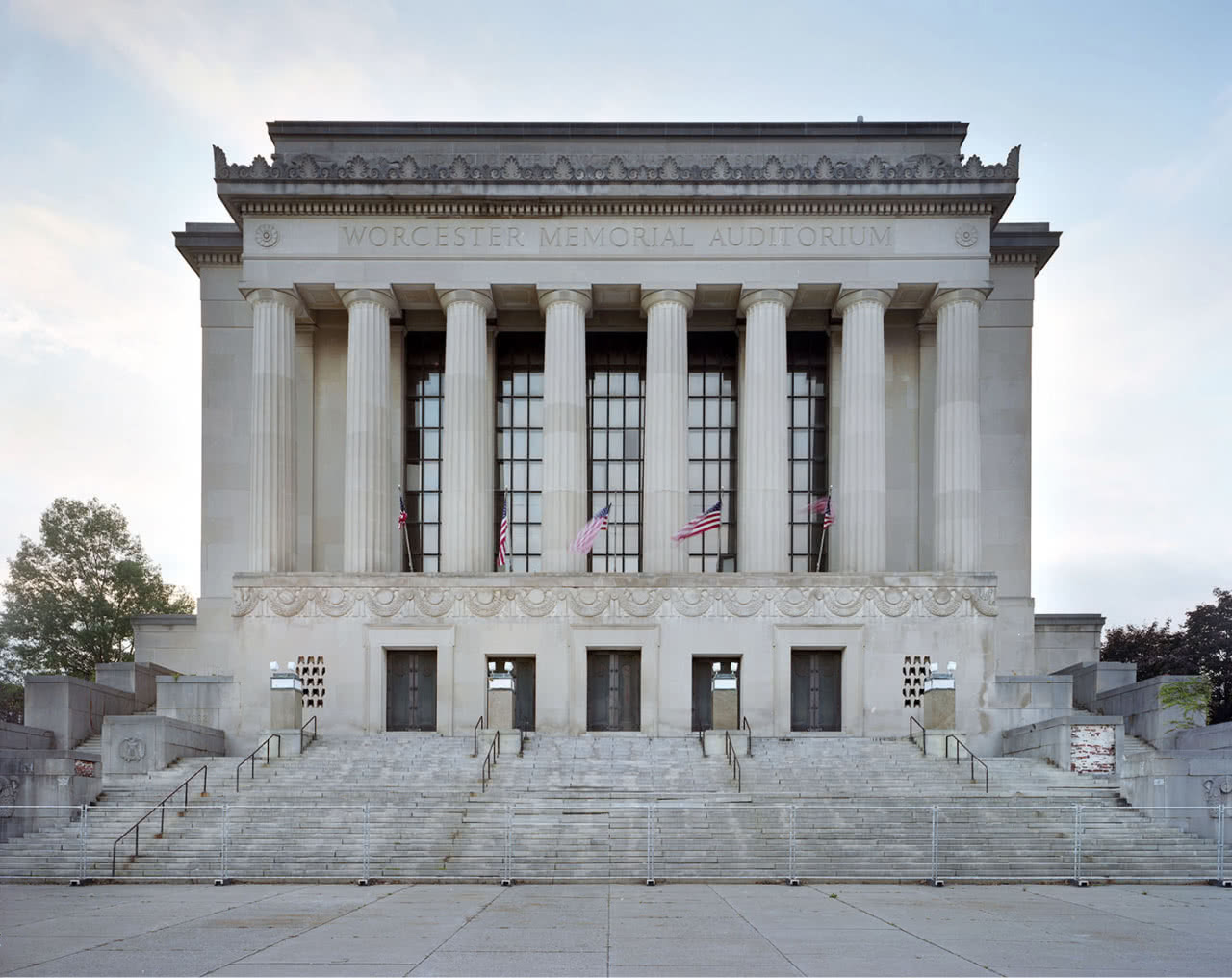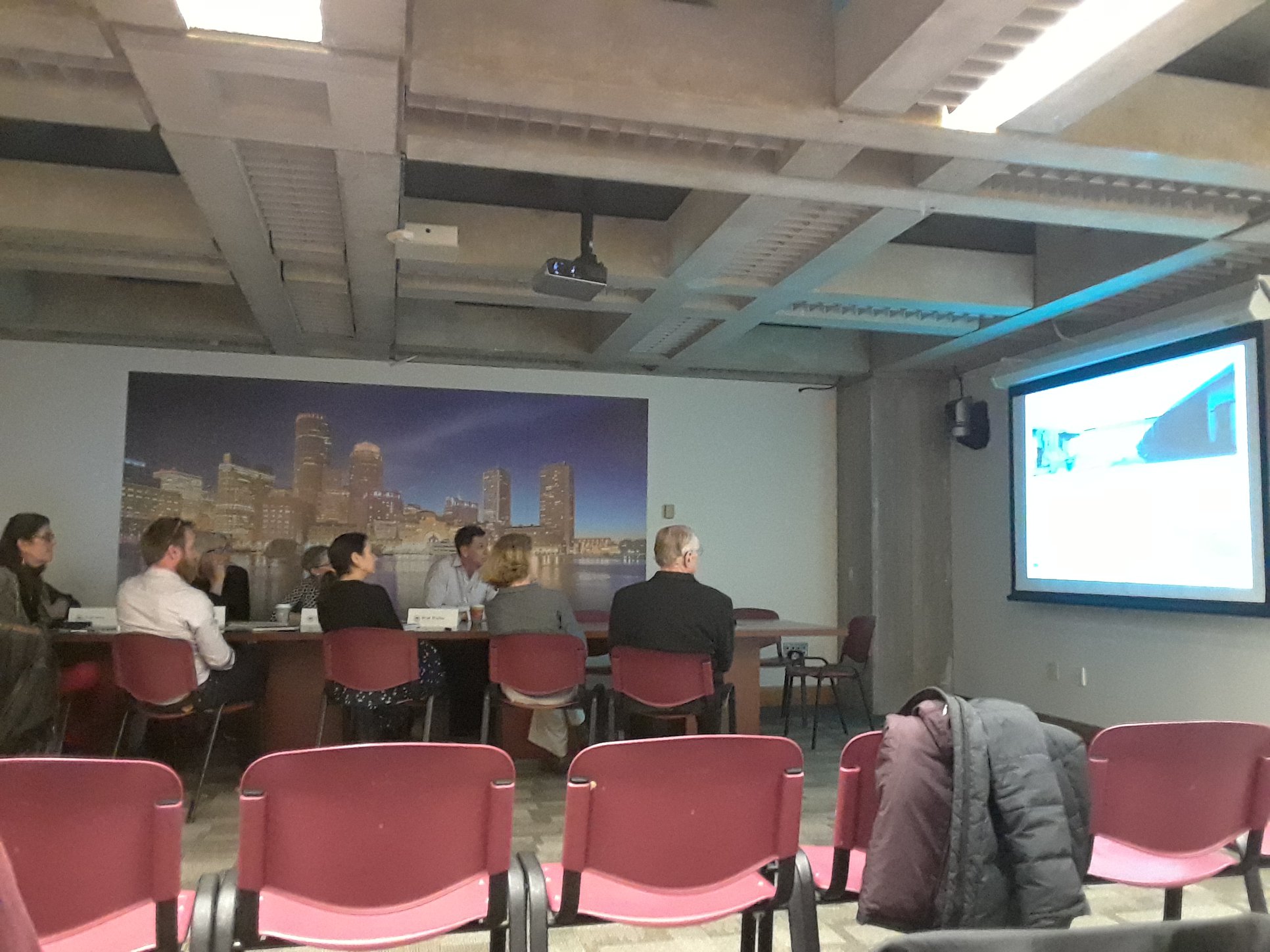How a Small Group of Volunteers is Transforming a Rural Town through Historic Preservation and the Arts

What if a vacant town hall in a small Massachusetts community were granted a new life as an arts center devoted to solving the national problem of rural isolation? For the Friends of the North Brookfield Town House, this vision holds the key to their community’s revitalization.
Not many people know about North Brookfield. Nestled among orchards and state forests, this town of 4,800 could, at first glance, be any rural New England village. Modest single-family homes line Main Street, which runs north to south through a small downtown. The white steeple of the First Congregational Church rises above a sprawling green, opposite the Romanesque bulk of the Haston Free Public Library. Dark storefront windows of low-rise commercial blocks turn blank stares to the street. The “For Rent” posters are offset here and there with “Open” signs that wink redly from the businesses that have managed to hold on: Angel Nails Salon, St. Jeans Country Package Store, Jim’s Pizza… Near the center of town, Vibram employs over two hundred in manufacturing rubber soles for outdoor boots – a modern incarnation of the Batcheller Shoe Factory, which fueled the community’s growth during the nineteenth century. And rising above it all is the North Brookfield Town House.

“The center of everything.” That’s how North Brookfield residents characterize the Town House, whose tall, arched windows and Italianate bell tower reflect the importance that its nineteenth-century designers and subsequent users attached to it. Once a town hall, theater, retail venue, and jail, the building has been vacant since 2002, victim to the same forces that have challenged North Brookfield and other rural communities throughout the country: reduced industry, the success of big box stores at the expense of small businesses, an exodus of young people seeking opportunity elsewhere. For many residents, the Town House’s peeling paint and locked doors came to symbolize these problems. Restoring the building would have to be part of the solution.
The Town House still stands today thanks to a dedicated group of volunteers. The Friends of the North Brookfield Town House were founded in 2006 to raise awareness and money for preserving the building. During the first several years, they focused on stabilization, such as repairing the roof and bell tower following Hurricane Irene. Yet the building’s future use was a persistent question. The Friends wanted the Town House to become a community hub – a coffee shop or artisan bakery, something to draw people downtown. But how to accomplish this multimillion-dollar restoration project in a financially sustainable way?

Finding an answer required the Friends to transform their approach to the project from fundraising around a predetermined use to amplifying the building’s unlimited possibilities. In 2017, AHF began consulting for the Friends and soon discovered that the plans for a coffee shop and bakery were infeasible in the local economic climate. There was simply not enough traffic downtown or expendable income locally to support a dining establishment. Rehabilitating the Town House as a destination café, or any other commercial venue, would require a full-scale downtown development plan to create a more business-friendly environment.
Far from being discouraged, the Friends ran with AHF’s advice – and ran further even than they thought possible. They forged a strong relationship with the North Brookfield Board of Selectmen, Central Massachusetts Regional Planning Commission (CMRPC), and Main Street America, leading to the creation of a Downtown Development Committee. They broadened their vision for the Town House to encompass a wide variety of future uses, from commercial to cultural. They raised the visibility of the building online, in classrooms, and at community events. At AHF’s suggestion, they organized a community-wide effort to repaint the Town House façade, transforming what appeared to be a shabby building into one brimming with potential. And people noticed.

Bonnie Milner, Owner and General Manager of local recording company Long View Farm Studios, was astounded when she saw the repainted Town House – a building that she had often passed, but seldom noticed. The Friends invited her to tour the building in hopes that she might furnish an idea for its reuse. She realized that it would the perfect location for her to fulfill a lifelong dream of establishing an arts center for rural at-risk youth. Several months of collaboration later, the Creative Life Center concept was born.
The Creative Life Center (CLC) at the North Brookfield Town House is intended to be a replicable model for addressing rural disfranchisement through the artistic reuse of cherished historic properties. Under Bonnie’s leadership and in partnership with Berklee College of Music, the CLC will offer educational programming in music, theater, and the visual arts for local youth and seniors, provide a performance venue for the broader Central Massachusetts community, and give emerging artists the opportunity to showcase their work. In so doing, the CLC will foster connection and stimulate economic development in an oft-overlooked rural region. Yet it’s only the beginning of North Brookfield’s revitalization.

While the Friends and Bonnie were refining the CLC concept, the Downtown Development Committee was working with CMRPC and Main Street America to create a business-friendly environment around the Town House. Their plans include streetscape improvements, such as handicapped-accessible sidewalks, bike lanes, benches, and plantings; renovations to the Common, its playing fields, and playgrounds; and the rehabilitation of other vacant historic properties for commercial and nonprofit uses. These improvements will be driven by the Town House restoration and the expected increase in foot traffic downtown around the CLC.
By doggedly trying to preserve an historic building, the Friends catalyzed a downtown revitalization project. Their perseverance, diligence, and flexibility are putting North Brookfield on the map and giving other rural communities throughout the country reason to hope. Not even the pandemic has slowed them as they embark on a capital campaign to raise $2.5 million for the Town House’s rehabilitation. Each day brings them closer to their goal of reinvigorating rural communities through historic preservation and the arts.
To help the Friends realize their vision, visit their website to donate.
Architectural Heritage Foundation is a 501(c)3 dedicated to stimulating economic development in disinvested communities through historic preservation. Follow AHF and its projects on Facebook, Twitter, Instagram, and LinkedIn.
